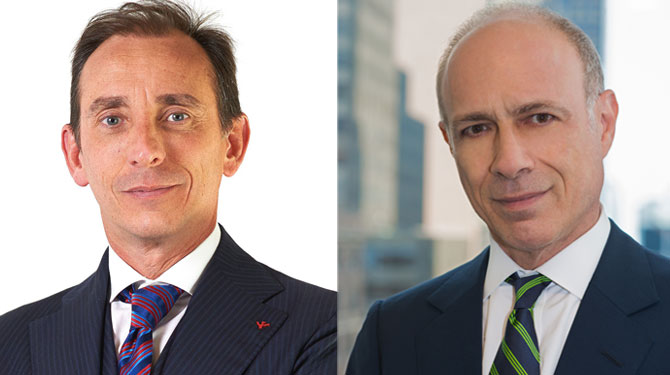Sign up for our free daily newsletter
YOUR PRIVACY - PLEASE READ CAREFULLY DATA PROTECTION STATEMENT
Below we explain how we will communicate with you. We set out how we use your data in our Privacy Policy.
Global City Media, and its associated brands will use the lawful basis of legitimate interests to use
the
contact details you have supplied to contact you regarding our publications, events, training,
reader
research, and other relevant information. We will always give you the option to opt out of our
marketing.
By clicking submit, you confirm that you understand and accept the Terms & Conditions and Privacy Policy
The metaverse can be defined as the 3D immersive and virtual experience of users on the internet, which essentially does not happen in the physical world. Within the metaverse, users can play games, buy goods and socialise.
First seen as a distant reality, the metaverse has become a real market, and concern, for fashion brands. Users not only want to belong and differentiate themselves in the real world, they also want their avatars to have a unique personality. One way this can be expressed is through fashion and brands that have been creating collections and skins for games such as Fortnite and League of Legends including Louis Vuitton and Balenciaga.
Brands have been able to find a new consumer group and different possibilities of interacting with them. For these brands, their expansion into the metaverse also means an expansion of necessary IP protection, with their creations, once physical assets, now considered digital assets as well.
The use of fashion brands and their relevant assets as digital goods brings questions on trademark use and brand strategy, including as to whether it should expand to classes of entertainment and software, as well as if different IP could not become a relevant trademark. For example, Nike created Nikeland on the platform Roblox, which is essentially a digital town where you can acquire Nike digital products, but also play games and 'practise' sports, such as Parkour. Nikeland opens a range of possibilities of new trademarks and classes for Nike due to all the different activities it encompasses.
Digital fashion assets also raise questions on design and trade dress protection, infringement and reputation, not only in terms of how the fashion brand wants to be perceived by users but also the control of misuse by users.
--------------
The authors wrote the Brazil chapter of the Law Over Borders Fashion Law comparative guide, which is published by The Global Legal Post
----------
Recently, Hermès’ Birkin bags have been the object of NFTs sold in the metaverse by artist Mason Rothschild, calling the NFTs 'MetaBirkins'. As of when this article was written, the sales had a total of almost $800,000.
In December, Hermès told The Financial Times that it had not authorised or consented to the commercialisation or creation the Birkin bag, adding that it was yet to enter the NFT market because it valued the 'tangible expression of handcrafted physical objects'.
Although Rothschild has declared that the NFTs are a tribute to Hermès and past NFT BabyBirkins from the same artist could have been a fair use case, the latest MetaBirkins may not fall into the same category, considering the profit and commercial nature of the product.
Hermès is not the only fashion brand facing this issue – pieces of Chanel and Louis Vuitton are also sold as NFTs.
How this dispute ends will open a path on how future issues will be handled.
The unfolding of the metaverse and fashion is just beginning and still uncertain. Fashion brands still struggle with the protection and enforcement of their assets and we can expect that it will be no different in the metaverse. On the other hand, there are a multitude of opportunities to explore that can enhance and improve fashion brands’ strategy and reputation.
Flavia Mansur Murad-Schaal is the founding partner of São Paolo-based law firm Mansur Murad Advogados and a professor of the postgraduate course in fashion law at Santa Marcelina College.
London-based Isadora Schumacher Jeong is the head of international practice of Mansur Murad Advogados and author of the Brazil chapter of the Fashion Law Guide published by the Global Legal Post.
Email your news and story ideas to: [email protected]












